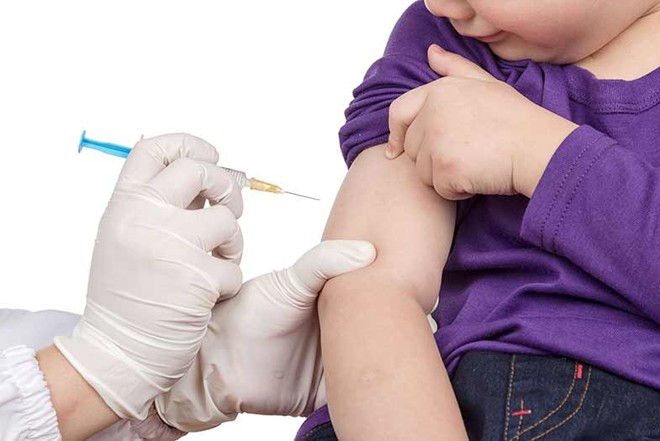 Photo: Getty Images
Photo: Getty Images
Symptoms of chickenpox
The incubation period of chickenpox isPeople call chickenpox - 21 days. Most often, signs of the disease appear 14 days after infection. For this, it is not at all necessary to come into close contact with the sick person, it is enough to just be in the same space with him, since chickenpox is transmitted by airborne droplets. The disease can be diagnosed by several signs at once: headache, aching joints, high temperature and blistering rash - this is the main symptom of this disease and the most unpleasant, since it is the rash that causes wild itching, and scratching the blisters, as a rule, leads to suppuration of the wounds. Chickenpox is considered a childhood disease, because most people get sick with it before the age of 7. It is then that the disease is less severe and does not carry with it practically any complications. If a person gets sick with it in adulthood, various negative consequences are possible, so doctors recommend that everyone who has not had chickenpox in childhood, after 14 years of age get vaccinated.
Treatment of Bubble Disease
The first thing to do with a sick person isIsolate it from healthy people for the entire period of the rash and for the next 5 days after the last crust falls off. Treatment is usually carried out at home and is aimed at reducing the patient's discomfort by lowering the temperature and eliminating itching. For the first, take medications, and for the second, use ointments and solutions. Brilliant green, salicylic alcohol, potassium permanganate solution and fucorcin, a drug with a purple color, are suitable. If there are rashes near the mouth, you can use acyclovir, if in the oral cavity, then decoctions of chamomile and calendula will help. Photo: Getty Images At what age it is necessary to vaccinate and whether it is worth it to decide at all, Wday.ru was told by infectious disease specialist Anna Timofeeva.
Photo: Getty Images At what age it is necessary to vaccinate and whether it is worth it to decide at all, Wday.ru was told by infectious disease specialist Anna Timofeeva. The chickenpox vaccine was developed back in 1974.year, which helped to significantly reduce the incidence of the disease in children and adults, because this disease is not so harmless. Complications after chickenpox can be encephalitis, pneumonia, disfiguring scars on the skin of the body, pneumonitis, blood poisoning and congenital chickenpox, which is diagnosed in 1 adult out of 1000 and in 1 child out of 10,000. Vaccination against chickenpox is an effective way to form immunity to this virus in 95% of vaccinated children under 5 years of age, in 78% under 13 years of age. Therefore, WHO strongly recommends double injection of the vaccine for persons over 13 years of age. In Russia, vaccination against chickenpox is not mandatory. It has been given to anyone starting from the age of 2 only since 2008. There is no point in vaccinating someone who has had chickenpox, as they have already developed lifelong immunity, but it is possible to use the vaccine as a preventive measure in case of contact with a sick person, provided that the vaccine is administered within 72 hours. Then infection can be avoided. In Russia, such a practice is not widespread. Everyone decides for themselves whether to get vaccinated in our country. However, if you recall the symptoms of the infection, you will see that this disease is quite capable of leading to negative consequences. Let's take, for example, a pregnant woman who has not had chickenpox before. This infection can lead to a miscarriage in the early stages or to the formation of congenital deformities in the fetus if the disease was suffered before the 20th week of gestation. And chickenpox in the expectant mother a week before giving birth can cause the development of congenital chickenpox in the baby. In addition, the body becomes very weak after the illness and easily gives in to attacks of colds, bronchitis, flu and other illnesses, says Anna Timofeeva.
The chickenpox vaccine was developed back in 1974.year, which helped to significantly reduce the incidence of the disease in children and adults, because this disease is not so harmless. Complications after chickenpox can be encephalitis, pneumonia, disfiguring scars on the skin of the body, pneumonitis, blood poisoning and congenital chickenpox, which is diagnosed in 1 adult out of 1000 and in 1 child out of 10,000. Vaccination against chickenpox is an effective way to form immunity to this virus in 95% of vaccinated children under 5 years of age, in 78% under 13 years of age. Therefore, WHO strongly recommends double injection of the vaccine for persons over 13 years of age. In Russia, vaccination against chickenpox is not mandatory. It has been given to anyone starting from the age of 2 only since 2008. There is no point in vaccinating someone who has had chickenpox, as they have already developed lifelong immunity, but it is possible to use the vaccine as a preventive measure in case of contact with a sick person, provided that the vaccine is administered within 72 hours. Then infection can be avoided. In Russia, such a practice is not widespread. Everyone decides for themselves whether to get vaccinated in our country. However, if you recall the symptoms of the infection, you will see that this disease is quite capable of leading to negative consequences. Let's take, for example, a pregnant woman who has not had chickenpox before. This infection can lead to a miscarriage in the early stages or to the formation of congenital deformities in the fetus if the disease was suffered before the 20th week of gestation. And chickenpox in the expectant mother a week before giving birth can cause the development of congenital chickenpox in the baby. In addition, the body becomes very weak after the illness and easily gives in to attacks of colds, bronchitis, flu and other illnesses, says Anna Timofeeva.









